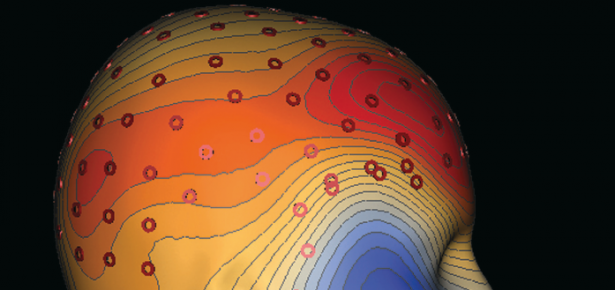
For over half a century, the hippocampus has been associated with conscious/explicit long-term memory for previously experienced items or events; however, this region has recently been linked to nonconscious/implicit memory. This has been shown in numerous patient lesion studies, where damage to the medial temporal lobe, which includes the hippocampus, typically produces a dramatic impairment in long-term memory and little or no impairment in implicit memory. This has also been shown in numerous functional magnetic resonance imaging (fMRI) studies, as long-term memory consistently activates the hippocampus but implicit memory does not activate this region.
A couple of studies with unusual tasks and analyses have associated the hippocampus with implicit memory. A strong claim has been made that the contextual cueing task is based on only implicit memory (Chun & Jiang, 1998). In the is task, participants were instructed to quickly detect the direction (“left” or “right”) of a rotated T embedded in many rotated Ls with different orientations. Twelve unique contexts (i.e., the configuration of Ls) were repeated thirty times during the experiment and cued the target location, while the other half of the contexts were new. Participants were faster at detecting the direction of the target for repeated contexts than new contexts. In a follow-up study, patients with damage to the medial temporal lobe that included the hippocampus were impaired on the contextual cuing task, which was interpreted as a link between the hippocampus and implicit memory (Chun & Phelps, 1999). However, these patients may have been impaired on this task because it was associated with explicit long-term memory. There is evidence for explicit memory contamination in the original study that introduced the contextual cuing task, as nearly half of the participants in one experiment said they were aware contexts were repeated. An fMRI study of contextual cuing using the same task also provided compelling evidence for explicit memory contamination (Preston & Gabrieli, 2008). After the task was complete, participants were given a test to measure whether they had long-term memory for the repeated contexts and performance was greater than chance, which indicates that many of the participants used long-term memory. In addition, contextual cuing performance produced activity in the perirhinal cortex, another region of the medial temporal lobe. This suggests that the previously described impairment in contextual cuing performance in patients with medial temporal lobe damage was due to damage to the perirhinal cortex rather than the hippocampus. These findings indicate that the contextual cuing task can reflect both implicit memory and long-term memory; thus, there is no convincing evidence that this task is associated with the hippocampus.
Another fMRI study also claimed to provide evidence of hippocampal involvement during implicit memory (Hannula & Ranganath, 2009). During the study phase, participants viewed face-scene pairs and assessed whether or not the face belonged in the scene. During each trial of the test phase, one of the previous scenes was presented for 1 second followed by a 7-second delay and participants were instructed to use the scene as a cue to retrieve the associated face. Then, three of the faces from the study phase were presented and participants selected the face that they thought matched the scene. In addition to making an explicit face recognition response (i.e., the button press indicating the face that matched the scene), eye movements were monitored to probe the viewing time for each face. The key trials were those in which the explicit face recognition was incorrect (i.e., they picked the wrong face with the button press) and there was higher viewing time for the correct face than for the incorrect face. This increase in viewing time to the correct face likely reflected implicit memory, as long-term memory (measured by the button press) failed on these trials. There was hippocampal activity during these trials; however, it did not occur when the three faces were presented and implicit processing could have occurred. Rather, the hippocampal activity occurred when the scene was presented alone, before the faces were presented. The major problem is that there is no basis to argue that implicit memory was operating when the scene was presented alone. During this period, participants were instructed to retrieve the face that had been paired with that scene. It can be assumed that participants retrieved the incorrect face during this period, since they subsequently made an incorrect button response, which reflects a false memory. As it is known that false memories can produce activity in the hippocampus, activity during the scene cue can be attributed to false memory rather than implicit memory. Therefore, this study does not provide any evidence that implicit memory is associated with the hippocampus.
Currently, there is no convincing evidence that implicit memory is associated with the hippocampus. If the aim is to find an association between implicit memory and the hippocampus, future studies will need to make a much stronger case that their task only reflects implicit memory. Based on the wealth of evidence showing that the hippocampus is associated with long-term memory but not implicit memory, this is unlikely to happen.
Check out the rest of the memory series blogs:
Part 1: Superior Memory Does Not Come Without a Cost
Part 2: Is the Hippocampus Associated with Implicit Memory?
Part 3: The Brain Basis of Forgetting
Part 4: Episodic Memory in Mammals
Part 5: The Consolidation Debate
Latest Comments
Have your say!